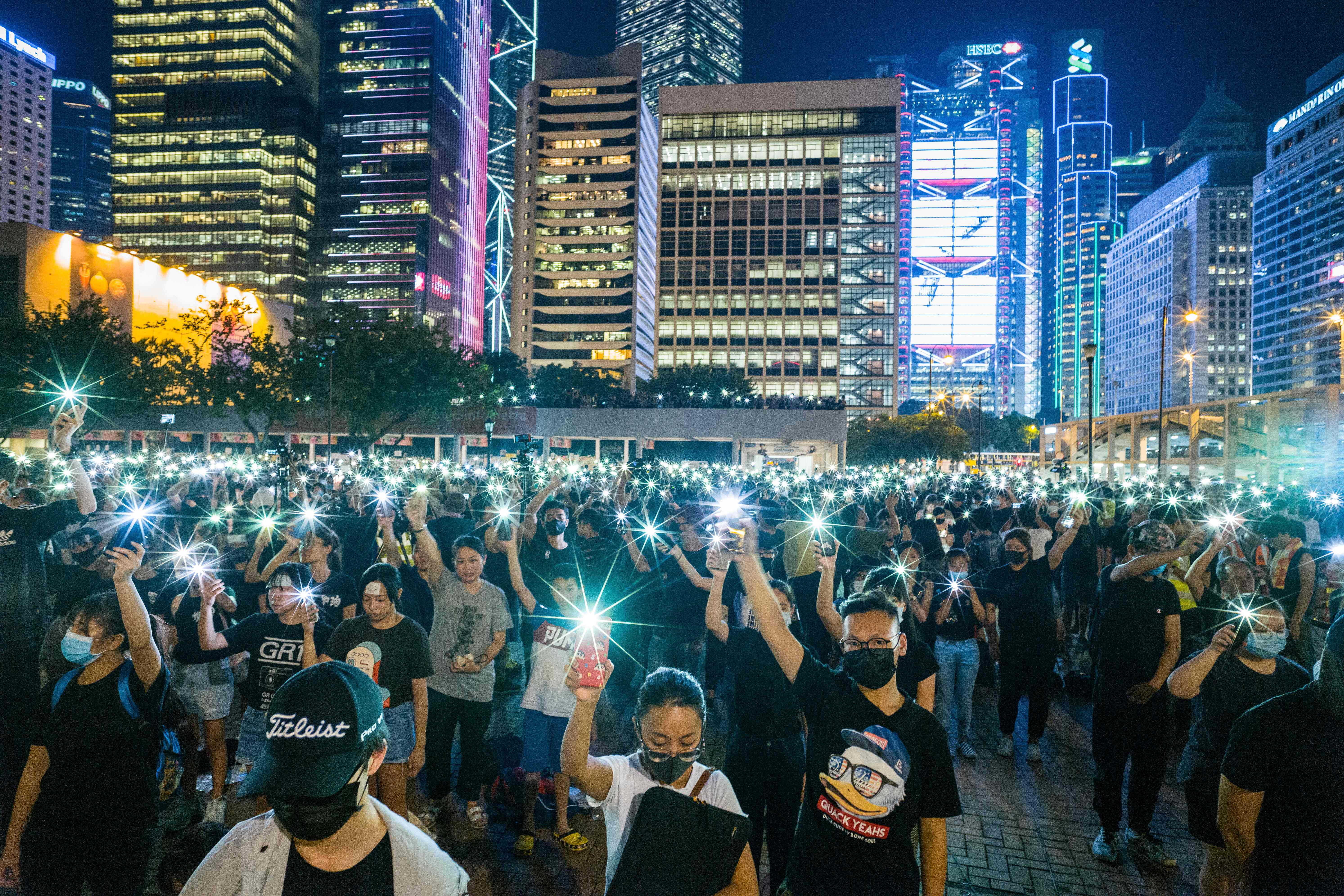Hong Kong plunges into recession
Rolling protests have caused the economy to shrink 3.2% in three months

A free daily email with the biggest news stories of the day – and the best features from TheWeek.com
You are now subscribed
Your newsletter sign-up was successful
Hong Kong’s economy has tumbled into its deepest recession since the financial crisis as months of pro-democracy protests forced shops to close, paralysed public transport, deterred tourists and slashed business investment.
According to official data released yesterday, the economy shrank 3.2% during the three months to September, compared to the previous quarter. That represents a sharp slowdown from the 0.5% contraction recorded in the second quarter, and much worse than economists had expected.
CNN says “as a major trading hub, Hong Kong was already hurting from the US-China trade war and China's slowing growth” while the BBC reports that “a weaker yuan has hit spending from mainland visitors and bruised consumer sentiment”.
The Week
Escape your echo chamber. Get the facts behind the news, plus analysis from multiple perspectives.

Sign up for The Week's Free Newsletters
From our morning news briefing to a weekly Good News Newsletter, get the best of The Week delivered directly to your inbox.
From our morning news briefing to a weekly Good News Newsletter, get the best of The Week delivered directly to your inbox.
Five months of mass demonstrations is now pushing the city toward an economic crisis.
Private consumption dropped 3.5%, fixed capital formation - or investment - collapsed by 16.3%, exports of services were down 13.7% and those of goods down 7%, while imports of goods fell 11.1% and services 3.8%.
–––––––––––––––––––––––––––––––For a round-up of the most important stories from around the world - and a concise, refreshing and balanced take on the week’s news agenda - try The Week magazine. Get your first six issues for £6–––––––––––––––––––––––––––––––
Visitor numbers plunged 37% year on year for the third quarter while hotels are on average only two-thirds full, a drop of 28% compared to the same period a year earlier. Many shops, meanwhile, have been forced to close early or shut down altogether over the past few months, while some have been targeted for their perceived pro-Beijing stance.
A free daily email with the biggest news stories of the day – and the best features from TheWeek.com
With the US-China trade war dragging on GDP, The Daily Telegraph says “the city can expect little respite as Beijing and Washington issued increasingly hostile statements in the latest sign that the spat between the world’s two largest economies will not be resolved soon”.
With some economists predicting the downturn will worsen in 2020, the Hong Kong government has begun rolling out measures to stimulate the economy. These include tax cuts and boosts to social security, as well as relaxing mortgage rules for first-time buyers. “But the administration, which holds a war chest of HK$1.1tn ($140bn) in fiscal reserves, has refrained from widescale stimulus,” says the Financial Times.
Speaking to business leaders yesterday, Hong Kong’s embattled Chief Executive Carrie Lam said: “What’s happening in Hong Kong now is unprecedented,” adding it is “inevitability the economy will be hard hit” but that “frankly, there is no room for optimism”.
Yet despite the troubled Hong Kong economy, there is one ray of sunshine in the shape of the city's financial markets. The Hang Seng Index (HSI) is still up 4% for the year, “and the political crisis hasn't been a deal breaker for investors yet, many of whom still see the city as an important gateway to Asia” says CNN.
-
 The environmental cost of GLP-1s
The environmental cost of GLP-1sThe explainer Producing the drugs is a dirty process
-
 Nuuk becomes ground zero for Greenland’s diplomatic straits
Nuuk becomes ground zero for Greenland’s diplomatic straitsIN THE SPOTLIGHT A flurry of new consular activity in Nuuk shows how important Greenland has become to Europeans’ anxiety about American imperialism
-
 ‘This is something that happens all too often’
‘This is something that happens all too often’Instant Opinion Opinion, comment and editorials of the day
-
 Epstein files topple law CEO, roil UK government
Epstein files topple law CEO, roil UK governmentSpeed Read Peter Mandelson, Britain’s former ambassador to the US, is caught up in the scandal
-
 Iran and US prepare to meet after skirmishes
Iran and US prepare to meet after skirmishesSpeed Read The incident comes amid heightened tensions in the Middle East
-
 Israel retrieves final hostage’s body from Gaza
Israel retrieves final hostage’s body from GazaSpeed Read The 24-year-old police officer was killed during the initial Hamas attack
-
 China’s Xi targets top general in growing purge
China’s Xi targets top general in growing purgeSpeed Read Zhang Youxia is being investigated over ‘grave violations’ of the law
-
 Panama and Canada are negotiating over a crucial copper mine
Panama and Canada are negotiating over a crucial copper mineIn the Spotlight Panama is set to make a final decision on the mine this summer
-
 Why Greenland’s natural resources are nearly impossible to mine
Why Greenland’s natural resources are nearly impossible to mineThe Explainer The country’s natural landscape makes the task extremely difficult
-
 Iran cuts internet as protests escalate
Iran cuts internet as protests escalateSpeed Reada Government buildings across the country have been set on fire
-
 US nabs ‘shadow’ tanker claimed by Russia
US nabs ‘shadow’ tanker claimed by RussiaSpeed Read The ship was one of two vessels seized by the US military